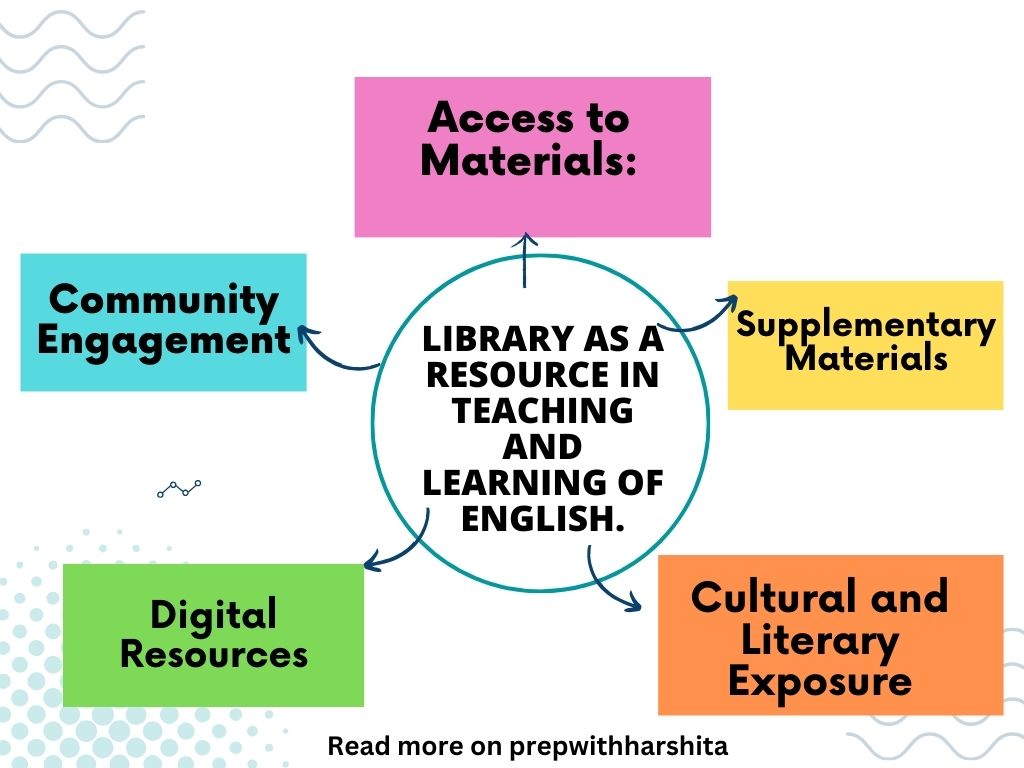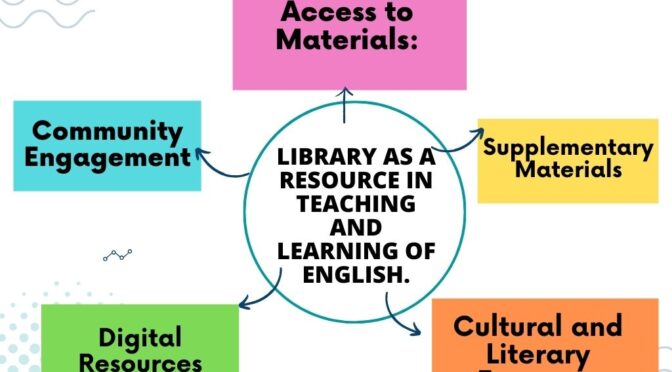Supplementary Materials for Curriculum: Teachers can supplement their English language curriculum with materials from the library to enrich classroom instruction. They can borrow relevant books, articles, and multimedia resources to reinforce concepts taught in class or to introduce new topics.
Cultural and Literary Exposure: Libraries expose learners to English literature and culture, providing opportunities to explore the works of renowned English-language authors, poets, and playwrights. Language learners acquire knowledge of many cultures and viewpoints through reading and discussing literary works.
Digital Resources and Online Learning: Many libraries provide access to digital resources such as e-books, audiobooks, online courses, and language learning platforms. These resources offer flexibility and convenience, allowing learners to engage with English language materials anytime, anywhere.
Community Engagement and Support: Libraries serve as community hubs where learners can connect with peers, educators, and language experts. They offer tutoring services, language exchange programs, and workshops on language-related topics, fostering a sense of belonging and support among learners.
Also Visit: Prep with Harshita



GLOBAL BUSINESS ELITE YOUR WHOLESALE SUPPLIER OF AGRICULTURAL AND INDUSTRIAL COMMODITIES
We are a global company providing food, ingredients, agricultural solutions and industrial products that are vital for living. We connect farmers with markets so they can prosper. We connect customers with ingredients so they can make meals people love. And we connect families with daily essentials from eggs to edible oils, salt to skincare, feed to alternative fuel. https://globalbusinessltd.co.uk/
Global business elite
copper cathode
aluminium wire scrap
scrap processor
scrap cpus
waste paper scrap
fridge compressor scrap
cable scrap
scrap copper wire
waste paper for sale
ceramic cpu scrap
icumsa 100
cpu scrap
wholesale sugar suppliers uk
scrap processor
scrap central processing units
occ paper scrap
occ waste paper scrap
nut prosper globe
ocopper cathode specifications
sachet water filling and sealing machine
insulated copper wire scrap
waste paper supplier
recycled copper wire
copper scrap wire
occ waste paper suppliers in uk
processor gold recovery
waste paper supplier
ccopper wire scrap millberry
Anyone who receives a cash register receipt with a web address, such as lowes survey, can enter a competition to win a $500 check and complete an online Lowes customer satisfaction survey.
http://www.Lowes.com/Survey
iyi çalışmalar